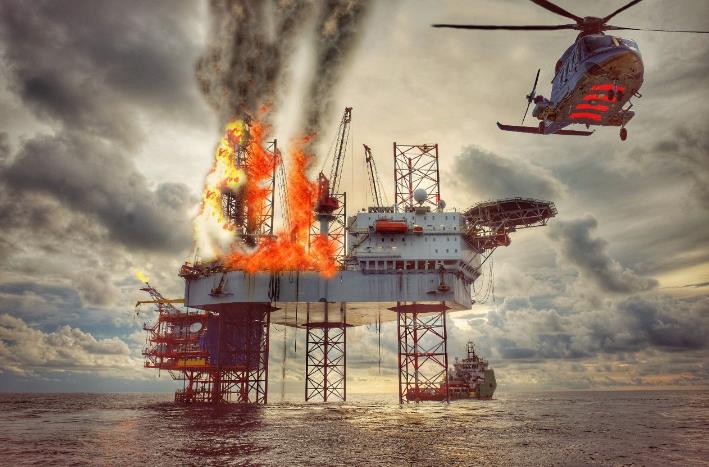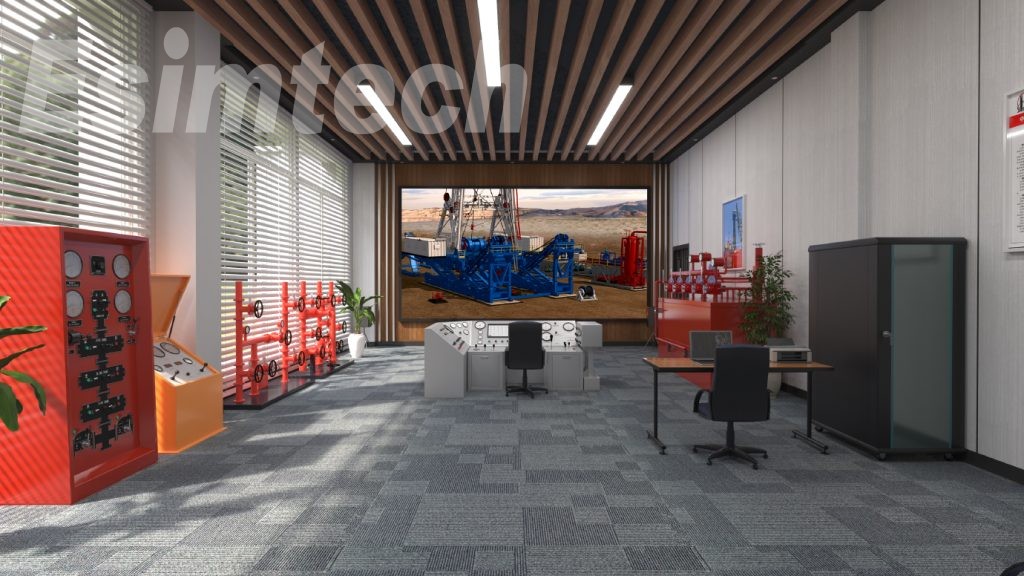Oil rigs, towering structures that extract valuable resources from the ocean floor, embody human ingenuity and the pursuit of energy independence. However, the very technologies driving progress also bring the risk of catastrophic events. The threat of an oil rig explosion underscores the importance of robust safety procedures and continuous vigilance. This article explores the causes, consequences, and preventive measures associated with oil rig explosions.

Causes of Oil Rig Explosions
Oil rig explosions result from a complex interplay of factors, with several key contributors:
Ignition Sources:
Electrical systems, machinery, and welding activities on oil rigs can produce sparks or excessive heat. A spark in the presence of flammable gases can trigger a chain reaction leading to an explosion.
Gas Leaks:
Hydrocarbon gases may escape from pressurized systems due to equipment failures, corrosion, or poor maintenance. When mixed with air in the right concentrations, these gases become explosive. Ignition Sources from Outside:
External factors like lightning strikes, static energy, and outside heat sources can ignite flammable chemicals, resulting in an explosion.
Human Error:
Operations mistakes, insufficient training, poor communication, and failure to follow safety regulations can contribute to conditions that lead to an explosion.
Impacts of Oil Rig Explosions
Oil rig explosions have severe and far-reaching consequences:
Loss of Life:
The most tragic consequence is the loss of human life, endangering workers on the rig and those involved in rescue and recovery activities.
Environmental Disaster:
Oil spills resulting from rig explosions harm marine habitats and threaten aquatic life, causing lasting environmental damage.
Property Damage:
Explosions can destroy the rig, neighboring structures, and boats, leading to substantial financial losses.
Economic Disruption:
Production disruptions can cause supply shortages and price fluctuations in the global oil market, affecting sectors and economies worldwide.

Essential Safety Measures and Mitigation Strategies
To prevent oil rig explosions, a comprehensive approach emphasizing safety, readiness, and continual improvement is essential:
Rigorous Risk Assessment:
Identify potential risks, analyze their likelihood, and calculate their potential impact through a thorough risk assessment.
Stringent Safety Protocols:
Strictly follow safety rules and guidelines, covering personal protective equipment (PPE) and emergency response techniques. Regular training sessions ensure readiness.
Robust Equipment Inspection and Maintenance:
Regularly examine, maintain, and test equipment to prevent unforeseen breakdowns and ensure everything is in good operating order.
Advanced Monitoring and Early Warning Systems:
Utilize monitoring and early warning systems, such as sensors and real-time data analysis, to detect anomalies and potential threats.
Comprehensive Training Programs:
Conduct regular emergency response simulation training programs covering safety protocols, emergency response methods, and the use of safety equipment.
Contingency and Emergency Response Plans:
Develop well-defined emergency and contingency plans detailing evacuation methods, communication protocols, medical response, and cooperation with relevant authorities.
Continuous Improvement and Learning:
Foster a culture of continual development, learning from mishaps and near misses, and regularly reviewing safety measures and technology.
Strong Leadership and Safety Culture:
Leadership plays a crucial role in establishing a strong safety culture. Emphasize the importance of safety and lead by example.
Conclusion
The looming possibility of an oil rig explosion emphasizes the inherent dangers of extracting energy resources. By understanding the causes, impacts, and preventive measures associated with oil rigs, the oil and gas industry can work towards a safer and more sustainable future. Prioritizing worker well-being, environmental protection, and a commitment to safety ensures a responsible and resilient energy extraction industry.